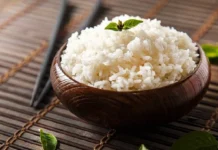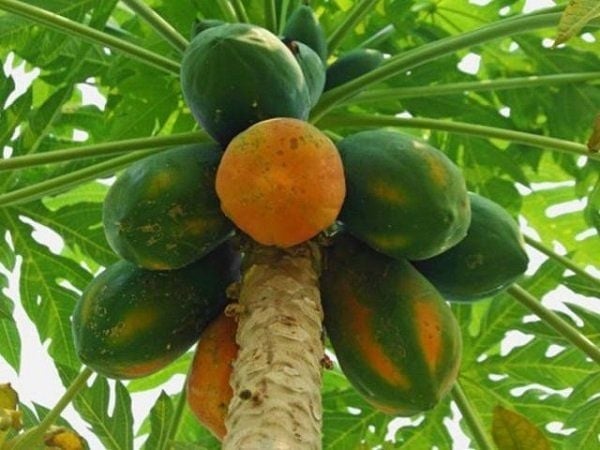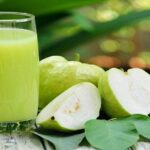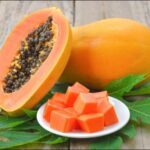1. Papaya: A Natural Shield Protecting the Fruit from Pesticides

Not only is papaya delicious and easy to eat, but it also boasts a thick skin that acts as a barrier against pesticides, preventing their infiltration into the flesh.
According to EWG analysts, approximately 80% of tested papaya samples were free of pesticide residues. This makes papaya one of the cleanest and safest fruits to consume daily.
In addition to its safety, papaya is a nutritional powerhouse, packed with vitamins C and A, fiber, and folate. It boosts immunity, aids digestion, promotes healthy skin, and even supports effective weight loss. Enjoy papaya fresh, as a smoothie, or incorporate it into healthy desserts.
Notes on Eating Papaya:
Avoid consuming unripe papaya: Unripe papaya contains latex, which can irritate the stomach and cause uterine contractions, especially dangerous for pregnant women.
Eat in moderation: Ripe papaya is naturally high in sugar. Diabetics and those on strict weight-loss diets should monitor their intake.
Choose naturally ripened papaya: Avoid chemically ripened papayas, as they may contain harmful ripening agents.
Don’t eat on an empty stomach: Papaya contains digestive enzymes like papain, which can cause discomfort if consumed when hungry.
2. Avocado: The Top-Ranked Fruit on the Global “Clean Fifteen” List
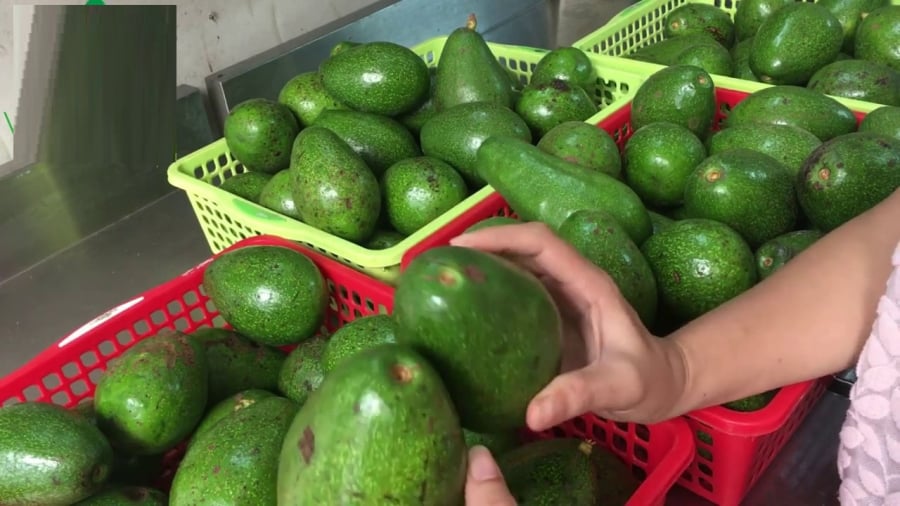
In Vietnam, avocados thrive in the highland regions of Lam Dong, Dak Lak, and Dong Nai, where the cool climate and fertile soil allow them to grow naturally with minimal pest issues.
Remarkably, according to EWG, avocados top the “Clean Fifteen” list, with less than 1% of samples showing pesticide residues. Their thick and sturdy skin acts as a natural barrier, keeping the flesh virtually free from chemical contamination.
Not only are avocados clean, but they’re also incredibly nutritious. They’re rich in heart-healthy monounsaturated fats and packed with fiber, vitamins K, E, and folate. Avocados are an excellent choice for dieters, skin health enthusiasts, or anyone seeking to incorporate healthy fats into their diet.
Avocados are versatile and can be used in smoothies, salads, on toast, or as a base for sauces and natural cosmetics.
Notes on Eating Avocados:
Consume in moderation: While avocados contain healthy fats, they are calorie-dense, with a medium-sized avocado containing over 300 calories. Overeating can lead to weight gain.
Those with liver issues should exercise caution: Due to their high-fat content, individuals with liver problems should consume avocados in moderation and consult their physician.
Avoid pairing with condensed milk too often: This popular combination increases sugar and calorie intake, which may be counterproductive for weight loss or dietary goals.
Be aware of potential allergies: While rare, some individuals may be allergic to avocados, especially those with latex or banana allergies. Monitor for any reactions when trying avocados for the first time.
10 Superfoods to Prevent Hair Loss and Stimulate Growth: Secrets of Asian Beauty Icons
Introducing a simple way to boost your hair’s health and vitality – from the inside out. Incorporating these foods into your diet is an easy and effective way to nourish your locks, prevent hair loss, and stimulate hair growth. With a variety of nutrient-rich options, you can give your hair the love and care it deserves.
Boost Your Vitamin C Intake: 5 Fruits Richer Than Oranges
Introducing the top 5 vitamin C-rich fruits that will give your immune system a powerful boost! These fruits are not your average oranges – they pack a punch when it comes to nutrition and offer a delightful twist to your daily diet. Discover the benefits of these super fruits and unlock a world of health and flavor.













